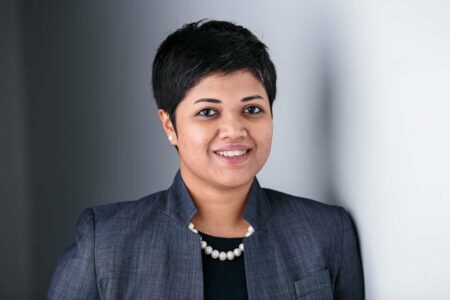Sarkar Delivers Lecture at the University of Toronto
Jayita Sarkar, Assistant Professor of International Relations at the Frederick S. Pardee School of Global Studies at Boston University, delivered a lecture based on her research at a symposium at the University of Toronto on April 12, 2018. Entitled, “Going Nuclear: A Symposium on American Nuclear Politics,” the symposium was co-sponsored by the Munk School of Global Affairs, the Bill Graham Centre for Contemporary International History and the Center for the Study of the United States. Prof. Francis J. Gavin from Johns Hopkins SAIS delivered the keynote speech on nuclear weapons and American grand strategy at the symposium.
Sarkar’s talk was entitled, “Nuclear Dominoes in Asia: Tarapur, the Chinese Explosion, and India’s Plutonium Plant, 1961-1964,” and is excerpted from her book manuscript that is currently undergoing revision. The abstract of her talk is below:
The existing proliferation literature treats nuclear assistance and nonproliferation as dichotomous: assistance may lead to proliferation which nonproliferation, by definition, must prevent. Historical evidence indicates otherwise. Newly declassified archival documents indicate that US nuclear assistance for the construction of two reactors in Tarapur was a deliberate tool of US nonproliferation, namely, to demonstrate technological prowess of a non-Communist, Democratic country in the face of Chinese nuclear weapons development, on the one hand, and secure US access to India’s dual-use nuclear program, on the other. Between late 1962 and 1963, the Kennedy administration pushed ahead with the Tarapur deal on nonproliferation grounds: to prevent a nuclear domino in South Asia. The findings of this study indicate that providing nuclear assistance has been a cornerstone of US nonproliferation policy in South Asia and elsewhere since the Cold War.
Jayita Sarkar, an historian by training, is Assistant Professor of International Relations at Boston University’s Frederick S. Pardee School of Global Studies. Her expertise is in the history of U.S. foreign policy, nuclear proliferation, the global Cold War, South Asia and Western Europe. Her research has appeared or is forthcoming in the Journal of Cold War Studies, Journal of Strategic Studies, Cold War History, International History Review, and elsewhere. Dr. Sarkar has held fellowships at MIT, Harvard, Columbia and Yale universities, and obtained a doctorate in International History from the Graduate Institute Geneva in Switzerland.
